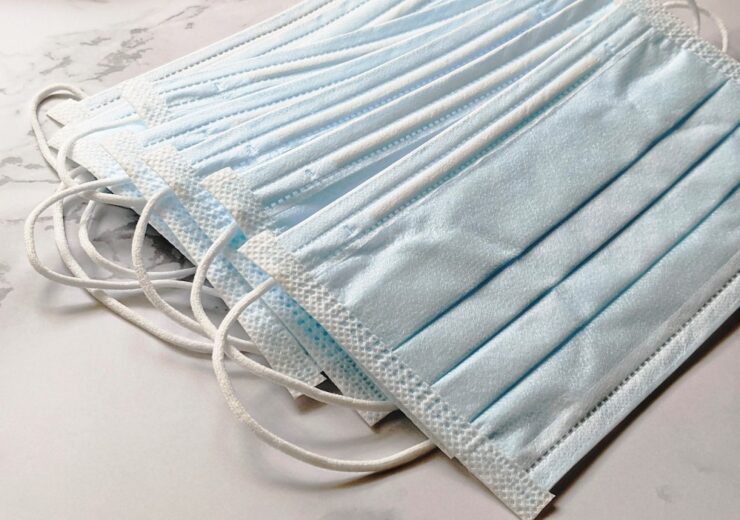A UCL study found that if every person in the UK used single-use plastic face masks every day for a year, it could generate 123,000 tonnes of waste

England has joined Scotland, France, Germany, and Spain in making face coverings compulsory in shops (Credit: Pixabay)
Reusable face masks worn to tackle the Covid-19 pandemic could prevent 124,000 tonnes of plastic waste being generated, say experts.
This comes as England joins Scotland, France, Germany, and Spain in making face coverings compulsory in shops.
Experts from both the EU’s European Centre for Disease Prevention and Control, and the World Health Organisation say reusable face masks are effective when used correctly.
As for single-use face masks, a University College London (UCL) study found that if every person in the UK used a single-use plastic face mask every day for a year, it could generate an additional 66,000 tonnes of contaminated waste and 57,000 tonnes of plastic packaging.
Professor Mark Miodownik MBE, who is UCL’s project lead at the Plastic Waste Innovation Hub and a fellow of the Royal Academy of Engineering, said: “For general public use, reusable fabric masks are effective and far preferable to single-use plastic masks.
“They reduce the environmental and health risks associated with the disposal of 66,000 tonnes of contaminated plastic waste that will be produced if everyone in the UK starts wearing single-use plastic masks.
“Reusable masks also significantly reduce the climate change impact of this new government rule.”
Dr Jennifer Cole, northern European regional hub coordinator of the Planetary Health Alliance consortium, added: “Human health is dependent on the health of the environment, and Covid-19 must not become a reason to further degrade that health.
Single-use disposable masks and plastic gloves must be avoided for general public use. Cloth face masks and must be made more widely available.”
Environmental impact of single-use plastic face masks
According to the experts, once single-use plastic face masks become ocean debris, they can float in the water like plastic bags and could be mistaken as food by marine life.
Discarded masks can also degrade into tiny microplastics that are too small to be removed from oceans or rivers, and can be harmful to wildlife.
On 21 July 2020, research from Royal Holloway reported that an estimated 94,000 microplastics flow down the River Thames every second.
Louise Edge, a senior campaigner at the charity Greenpeace, said: “Throwaway masks are the latest plastic menace to found strewn across parks and pavements.
“They find their way in our waterways, clogging up our rivers and seas and degrading into harmful microplastics.

“But disposable masks are not inherently safer for general public use than reusable ones, and experts say reusable masks can protect us during the pandemic, if worn and washed properly.
“Plastic masks float like jellyfish in water so turtles can mistake them for food and other wildlife like sea birds can become tangled in the plastic.
“We know better than to add to the plastic pollution problem. Blue Planet opened our eyes to the hazards of plastic in the ocean, and we mustn’t look away now.”
Most single-use plastic masks available for members of the public to buy are made from several types of plastic, making it incredibly difficult to recycle.
Alternatively, reusable masks made from fabric are both less wasteful and harmful to the environment, and are just effective for use in shops and on public transport.
Food packaging manufacturing developing reusable masks
In June 2020, Finnish food packaging manufacturer Huhtamaki announced it had developed its own range of face masks to help during Covid-19.
The reusable Huhta Masks are suitable for daily use and can help reduce the spread of droplets in the environment.
The firm says the products are breathable, washable, and made of fabric with anti-microbial and fluid repellent properties.
Huhtamaki Foodservice UK general manager Ciaran Doherty said at the time: “The Hutha Mask allows people to resume their everyday activities whilst taking others into consideration.”
Launched in the UK in July, the masks are initially available in two sizes – one for adults and the other for children aged 36 months and older.
The “shelf-ready” package comprises of ten packs, each with one mask that can be displayed on a shelf.
It follows on from the company in May repurposing five European-based folding carton packaging units to manufacture face shields.
As of June, the firm has provided more than 30 million face masks for healthcare workers and others to the NHS.
